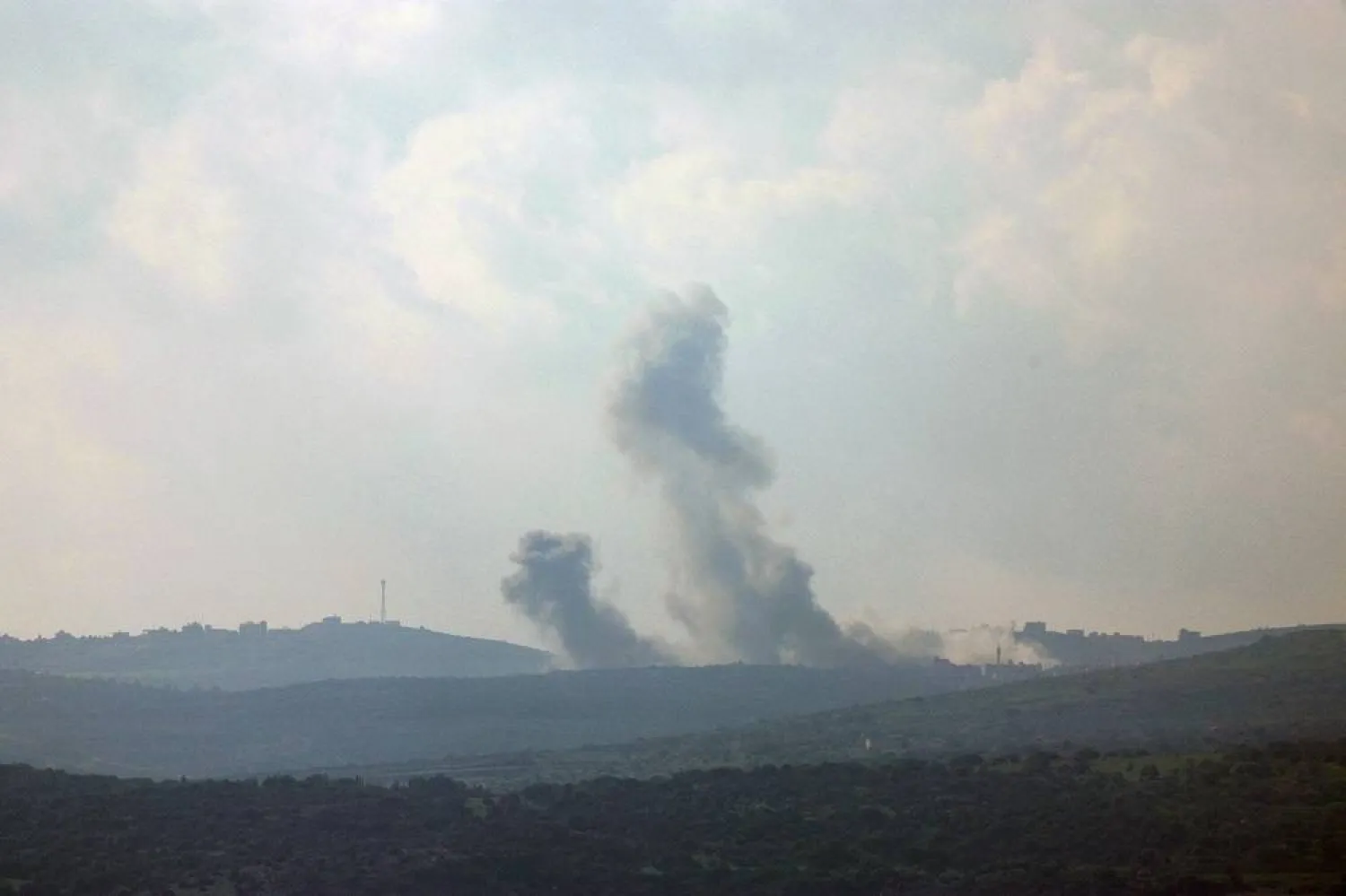Israeli warplanes struck Lebanon's Bekaa Valley on Monday, killing at least two Hezbollah members in its deepest attack into Lebanese territory since hostilities erupted with the Iran-backed group last October, sources in Lebanon said.
Underlining the risks of escalation, Hezbollah responded by firing 60 rockets at an Israeli army headquarters in the Israeli-occupied Golan Heights, the group's al-Manar television reported. An Israeli army spokesperson said dozens of rockets were fired towards the Golan Heights from Lebanon.
The attacks marked an intensification of the worst violence between the heavily armed Hezbollah and Israel since their 2006 war, fueling concern of the potential for further escalation and regional spillover of the Gaza war.
The Israeli army said its fighter jets had struck Hezbollah air defenses in the Bekaa Valley in response to the downing of an Israeli drone, which Hezbollah said it had shot down with a surface-to-air missile earlier on Monday.
The airstrikes hit part of the Bekaa Valley region near the Syrian border which is a political stronghold of the Shiite Hezbollah. The targeted area was some 18 km (11 miles) from the city of Baalbek, which is known for its ancient ruins.
The sources said Israel had carried out simultaneous strikes in the area. A Lebanese security source and a source familiar with the matter said two Hezbollah members had been killed.
Lebanese television station Al-Jadeed broadcast images of plumes of smoke rising from the area.
In a separate attack, an Israeli airstrike hit a car in the town of Mjadel in southern Lebanon, killing a Hezbollah field commander, three security sources in Lebanon said.
Hezbollah MP Hassan Fadlallah said Israel had widened its strikes by hitting Baalbek and other areas, and was seeking to "compensate" for the downing of its drone.
"Its aggression on Baalbek or any other areas will not remain without response," he said in televised remarks delivered at the funeral of a Hezbollah fighter killed in recent days.
The Israeli military said it would "continue operating to defend the State of Israel from the threat of Hezbollah terrorist organization, including in aerial operations above Lebanese territory".
Hezbollah has been waging a campaign of attacks on targets at the border with Israel since the Oct. 7 raid from the Gaza Strip by its Palestinian ally Hamas. Hezbollah describes it as an effort to support Palestinians under Israeli fire in Gaza.
Israel says to ‘increase the fire’ on Hezbollah
The hostilities have largely played out in areas near the Lebanese-Israeli border, but last week widened when Israel struck an area just south of the coastal city of Sidon.
Israeli Defense Minister Yoav Gallant indicated on Sunday that Israel planned to increase attacks on Hezbollah in the event of a possible ceasefire in the Gaza conflict.
"If a temporary pause is reached in Gaza, we will increase the fire in the north separately, and will continue until the full withdrawal of Hezbollah [from the border] and the return of Israeli citizens to their homes," he said.
The violence has uprooted tens of thousands of people on both sides of the border.
Hezbollah said earlier on Monday it had shot down an Israeli Hermes 450 drone over Lebanese territory with a surface-to-air missile.
The Israeli military said two missile launches had targeted an Israeli Air Force unmanned aerial vehicle operating over Lebanon. The first, it said, was intercepted by Israel's "David's Sling" Aerial Defense System but the drone "fell inside Lebanese territory" after a second launch.
Israeli strikes since October have killed some 50 civilians in Lebanon, in addition to some 200 Hezbollah fighters.
Attacks from Lebanon into Israel have killed a dozen Israeli soldiers troops and five civilians.









